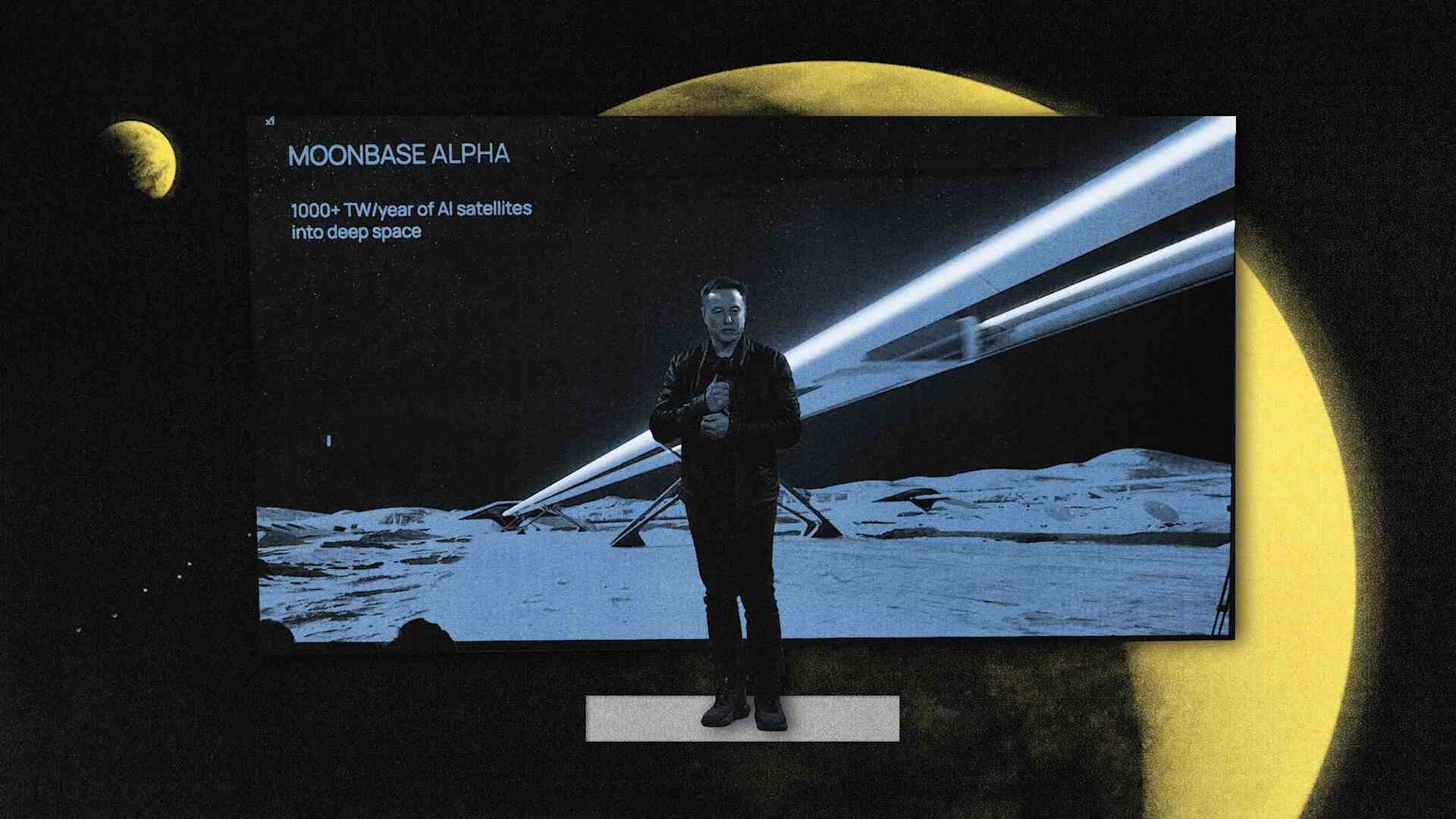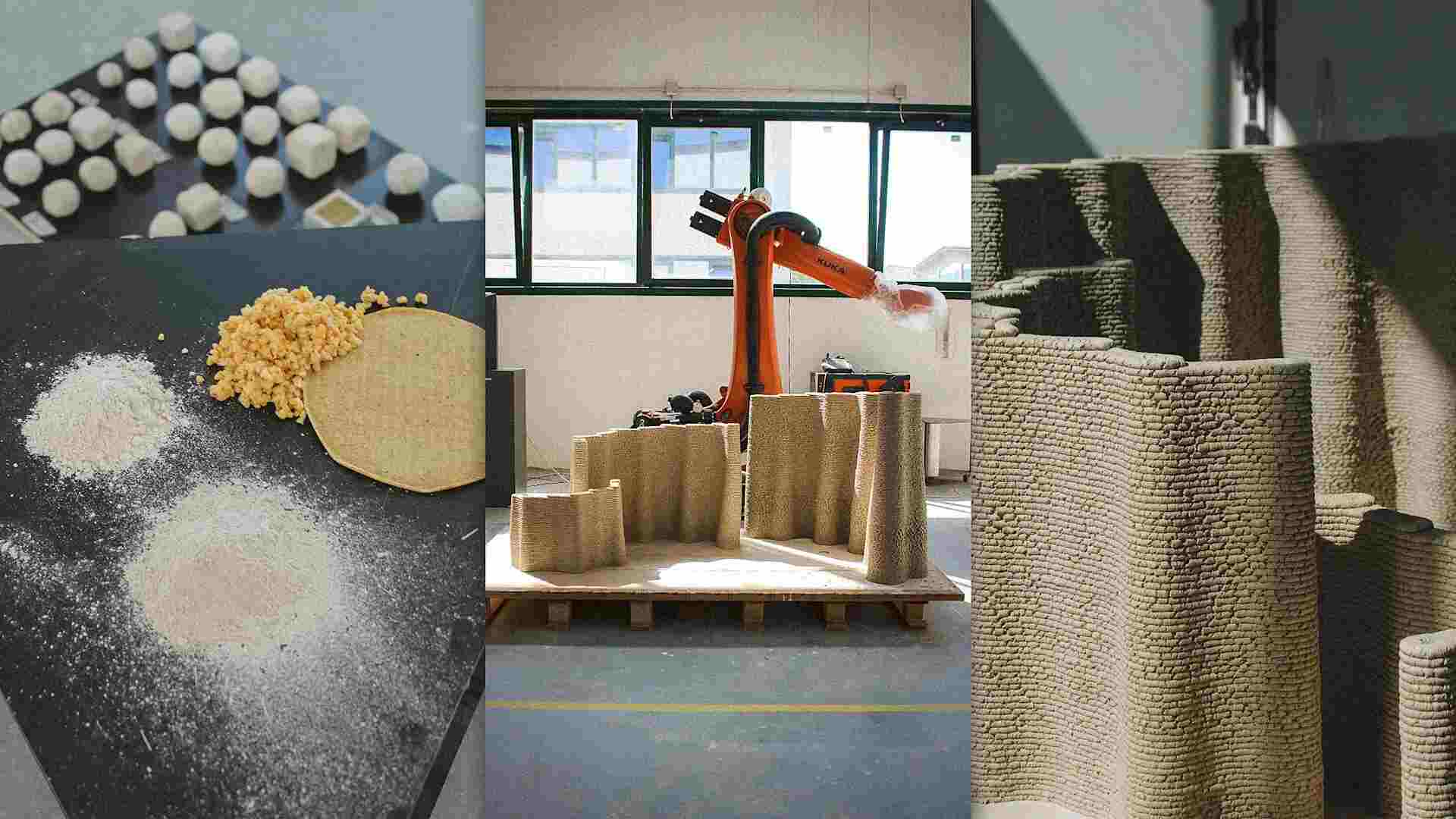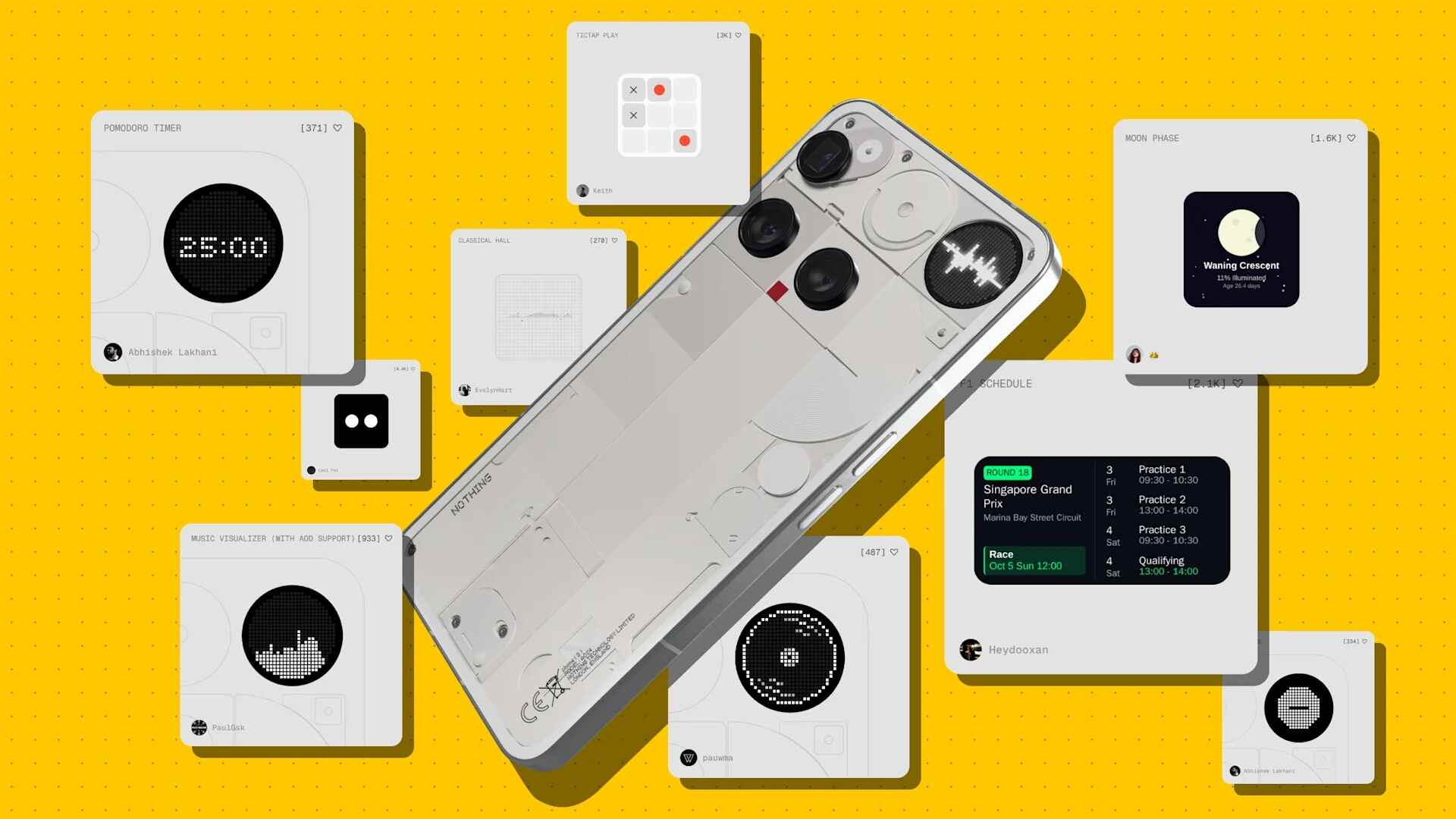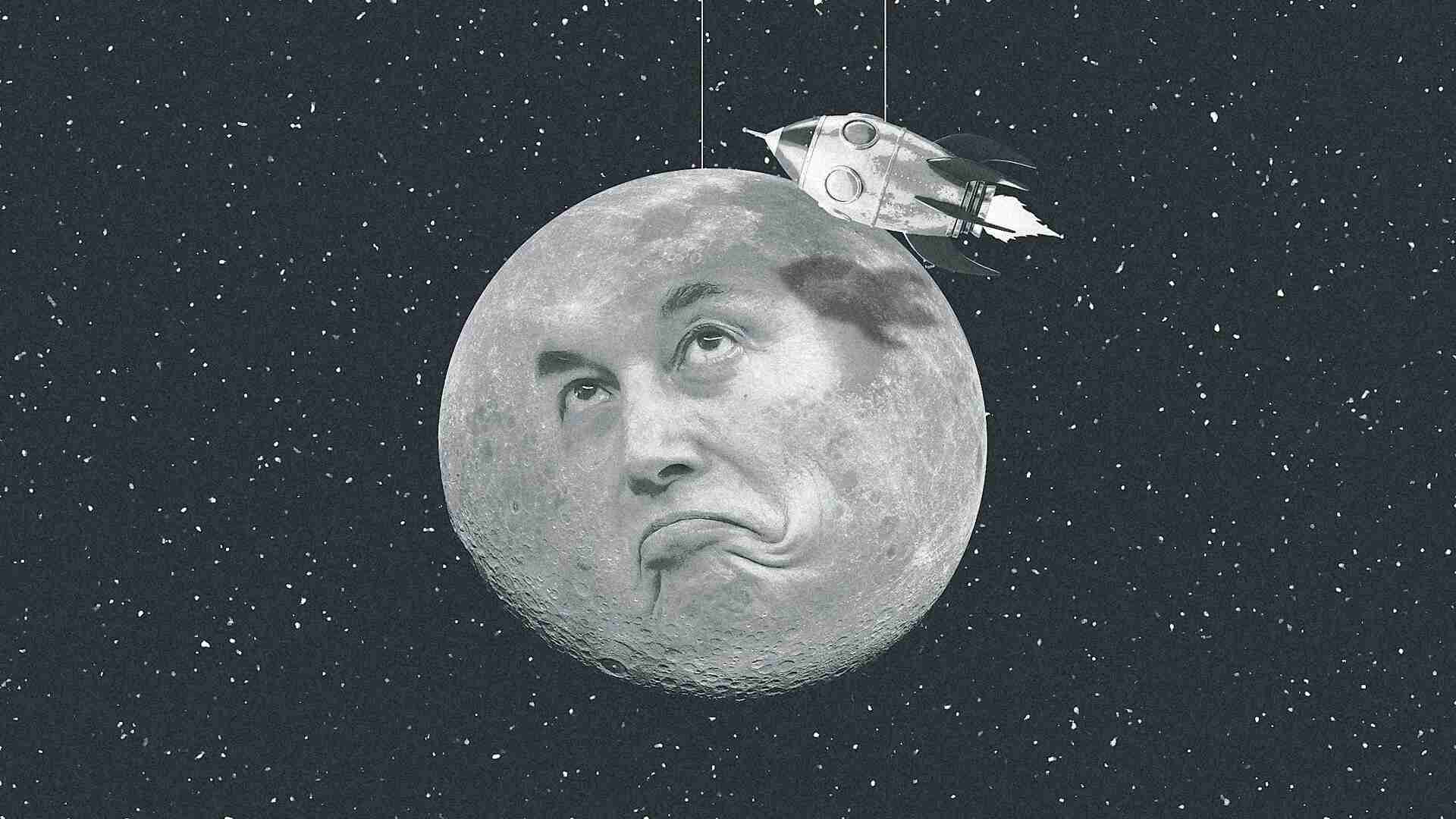- | 9:00 am
These Gen-Z founders turned down cushy consulting jobs to create a TikTok-famous doggie bed for humans
Noah Silverman and Yuki Kinoshita, the savvy entrepreneurs behind Plufl, just might convince you to change the way you nap.
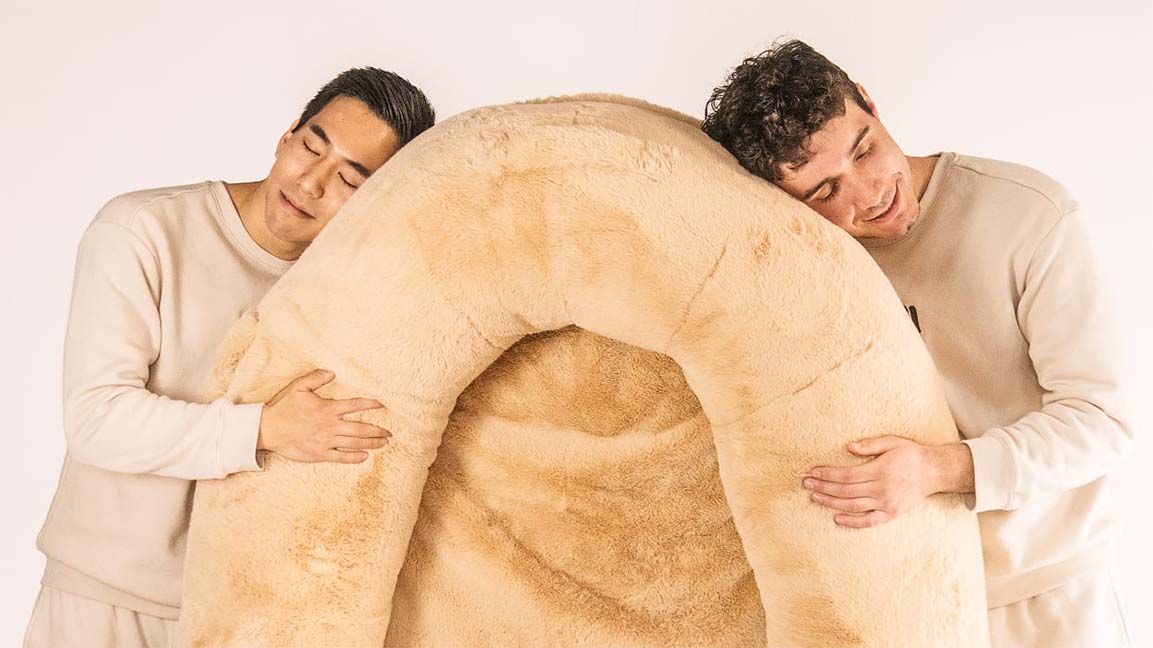
Noah Silverman and Yuki Kinoshita, both 22, turned down jobs as economic consultants when they graduated from the University of British Columbia in 2022. Instead, they choose to chase a grander dream: creating Plufl, a company that sells dog beds for humans.
Plufl (a portmanteau of the words plush and fluffy) officially launched in April, and it has $1 million in revenue so far. Silverman and Kinoshita were featured on Shark Tank, where they secured a $200,000 deal from Mark Cuban and Lori Greiner. On TikTok, their videos have over 50 million views.
When Kinoshita reached out to me with a message entitled: “Dog Bed….for Humans?” I snorted. Then I opened his message. Then I looked at Plufl’s website. Then I wanted a Plufl. Never mind that I have a perfectly serviceable bed and couch. I wanted a $500 dog bed made for humans. I was frightened. I needed to be held. I needed a Plufl.
I spoke with Silverman and Kinoshita to understand how they’d managed to make something that looked like it belonged in Sky Mall magazine appear so appealing. Were they magical elves full of charm and joy? Marketing geniuses? Drinking some really really good coffee? Maybe all of the above.
When we spoke, the duo was in Louisville, picking up their first batch of Plufls so they could hand deliver them to customers for the Christmas season. At one point, we were all laughing so hard that we had to take a breather. However, underneath the hilarity was a passion for excellence, and a thoughtfulness about how to build a business, combined with a rock-solid marketing savvy. Five minutes into our conversation, Kinoshita pitched me on a second story—reviewing a Plufl. Obviously, I said yes.
The following transcript has been edited for clarity.
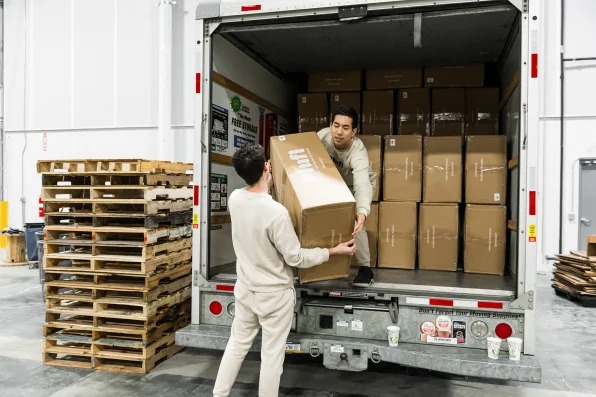
[Photo: Courtesy Plufl]
Fast Company: How did you come up with the idea of a dog bed for humans, pray tell?
Noah Silverman: During my time at school, I worked as a barista at a coffee shop that had a giant Great Dane. It would always lounge by the counter in a huge bed. I would see it sleeping and napping and relaxing, and would always get really jealous. I’m in the middle of finals. I’m working a lot. I’m studying. And this dog is just out here sleeping and napping all the time [in] the giant plush comfy bed. Yuki and I were friends, and he’s always had an entrepreneurial mindset.
Yuki Kinoshita: I’m Japanese. We have a culture of sleeping on the floor. So that just came natural to me when Noah gave me the idea. And I could just imagine myself sleeping on a giant human dog bed and wanted nothing more at that point, especially because I was so tired and stressed and all the feelings that a college student feel, so yeah, we just we just said screw it. Why not? Let’s have some fun. Let’s see how far we can take this thing. It just made sense.
FC: It actually doesn’t make sense to me. I’m torn between utter enchantment and complete bewilderment. It’s really hurting my brain. How did you turn this into a product?
YK: We started off by just taking like a large dog bed and trying to sleep on it. But we quickly realized materials, everything about it, wasn’t working. Comfort for humans isn’t the same as comfort for dogs. So we found a local seamstress on Craigslist, told her the idea, brought all the materials—fabric, pillow stuffing from Ikea—and were like, “Hey, can you make like just this giant human-sized dog bed?”
FC: She . . . didn’t ask questions?
NS: She didn’t ask many questions.
NS: I think some things got lost in translation a little bit.
YK: I think she thought we had a very large dog.
NS: We really had to break down every part and think about how we can adapt the materials, the design, the specifications to maximize comfort for humans. One of the more challenging parts was actually getting our product designed from the very start. We always said we didn’t want to just make a large dog bed; we wanted to create an entirely new product that was more inspired by the shape of a dog bed and the feeling it evokes. Getting to the point where we had a good product that we’re proud of was quite challenging. We studied econ; we didn’t have a background in this. We spent nearly a year actually refining and refining the product design to get to where it is today, because we had a really high standard for what we wanted to deliver.
FC: How did you reach your first customer?
YK: The first few customers were just local university students. We literally picked random students walking by, found the ones that looked tired, and asked them to try the product. Where things really took off is when we went on TikTok. Our fifth video went absolutely viral in March. We got like three million views in a week. And that led to 10,000 email subscribers and it just got so much momentum when all we had was still just a prototype that we had made. We knew at that moment we had to take action and launch something.
We’re like, crap, we need to move 100 times faster now. We hired a part-time product development person who turned what we had into a technical package, which was the blueprint for the product. We used that to communicate with manufacturers. Our speed of improvement and iteration just became so much faster. We went from having one to two samples made a month to like 10 samples made a month.
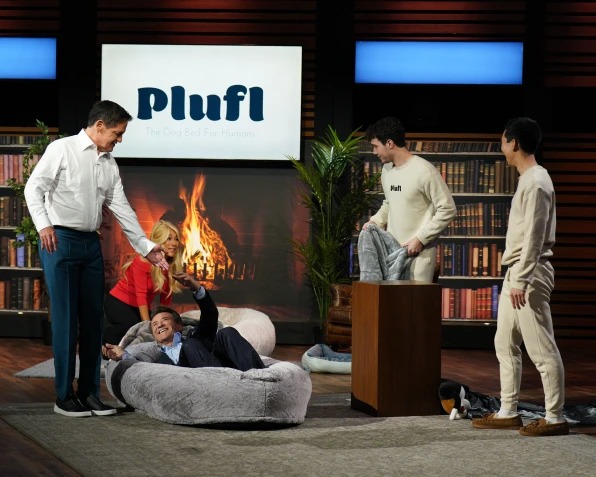
[Photo: Courtesy ABC]
FC: How did Shark Tank happen?
NS: Shark Tank actually approached us back in April. We got an email from a producer there and we thought it was actually fraudulent because it came from a weird domain. But they’d seen our TikTok and thought the product was perfect for the show. And we’d always kind of had in the back of our mind that Plufl belongs on Shark Tank.
The show does a great job of prepping you to pitch to the sharks. We prepared so much, but it was such a fun, amazing experience. We spent weeks just watching the show over and over and over again to prepare. They play your episode for about 10 to 15 minutes, but the actual pitches usually lasts much longer—close to an hour. But ours was only 15 to 20 minutes.
YK: We talked to other companies and they told us to expect to pitch for 40 minutes. We prepared a list of 100 questions we could answer. We were so prepared to answer anything. But we were so shocked because they asked us only three to five questions. And then they just started arguing amongst each other about whether they thought it was a good idea or not. And then before we knew it, we had multiple offers, including Laurie and Mark. The first thing I asked the producers was, Did you get enough footage? Do you need more? They were like, Why are you asking us questions? Just be happy you got the deal.
NS: We wanted more grilling. We had all these answers rehearsed!
FC: How did you know the Plufl was an idea worth investing all of this work into?
YK: We did this because we were having fun, and because we enjoyed it. That’s just one thing that’s been consistent throughout this whole journey. We never did this to make money or hit milestones. Those are great rewards. But at the end of the day, what matters to both of us is as we’re having fun, then business will continue. The moment we stop feeling like fulfilled and enjoying what we’re doing, then there’s no point of doing this.
NS: We didn’t go viral until March, but we’d been working on this since the previous September. We had no indication this product would work for eight months. But we focused on having fun and building the product and the brand.
YK: When I told my friends, they thought I was crazy. And they thought the product didn’t make sense. They’re like, that’s a cool idea, but they had so many questions about how we would do it. When we told the professor about our plan to launch a product, they were like, oh, no, you have to do all these different things first before you’re ready to launch.
But we had a simple goal of doing our best and getting it out there, so we decided to go ahead and create the business. We posted on TikTok because we thought it was a great avenue, but at the same time, it was risky, because we had no inventory. We just threw the idea out there as a Hail Mary. But we were able to raise funding through Kickstarter and give ourselves four or five months to figure out how to mass manufacture.
FC: It sounds like you had to design your own independent study in how to create the perfect human dog bed.
NS: One thing we’ve been really grateful for is just from the very start, we tried to surround ourselves with really supportive people. We actually joined like an incubator in Canada for startup founders under the age of 25. We met so many people and got some really valuable advice and avoided some near fatal mistakes.
YK: For example, with financing, we knew that crowdfunding was a good method to get our initial capital and to launch our company. But we also—again, we had never started a company before—thought any investment would be a good one. One thing we learned quickly is just because someone’s giving you $10,000, it doesn’t mean it’s always a good thing. There are people out there that might have been trying to take advantage of us, or might themselves not known about what’s standard. It was really valuable to be able to talk to and learn from people who had gone through this before and have them as a sounding board.
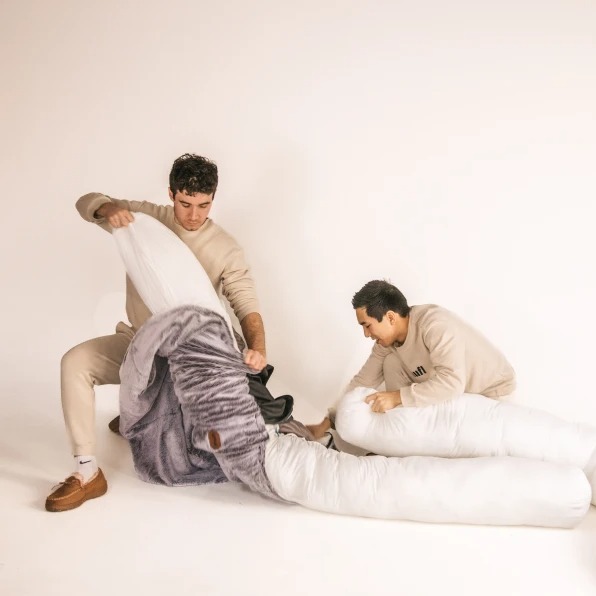
[Photo: Courtesy Plufl]
FC: How did you know when to ignore advice and when to follow it? If you’d paid attention to all the advice you got, it sounds like you wouldn’t have started Plufl.
YK: We noticed the best advice we got is from people that have actually started a company. They know there’s no right answer, and that you won’t really know until you try. They always encourage you to experiment. They will never tell you not to do something, unless it’s really, really stupid.
But people who kind of haven’t done this will tell you—oh, but wait, what about these 500 different things? But I think it’s all about the ability to take action.
NS: We really prioritized advice from people who’ve taken the time to get to know us on a personal level to the point where we know that they genuinely care. There’s a wide range of advice. People will tell you to polar-opposite things. But the people you have deeper relationships with will also get to know your business really well. Everyone’s situation is unique. There’s not just general advice that can be applied.
FC: A lot of times, young entrepreneurs worry they won’t have anything to offer mentors. How did you develop these connections with mentors?
NS: We took the approach of asking for conversations from a genuine desire of wanting to get connected and get advice. Not necessarily: “I’m trying to do X, can you help me?’ Just: “Hi, we’re starting out our business, we’d love to just get to know you.”
YK: We’ve been super fortunate in that a lot of people also want to mentor and nurture younger people. We also kept our asks small. We didn’t go straight for the industry leader in our space; we asked to talk to the person one step ahead of us. Obviously, not everyone wanted to talk, and not everyone is helpful, but there’s nothing to lose by asking.
NS: It’s kinda corny, but I’m a huge Harry Potter fan. Dumbledore has this saying that help will always be available to those who need it. I try to remember that the help is there and you just have to ask for it.
YK: Oh, boy.
FC: Oh, no. Yuki just put his head down. He looks like he’s trying to disassociate from this conversation.
NS: Dumbledore is our original mentor.
FC: How did you become friends?
NS: We met first year of college. We were in the same economics program.
YK: Noah was actually working in a coffee shop, and they had free bread so he’d always get me some. I grew up in America, and I knew he was also from America, and I knew him from class so I’d stop by and get some free bread. We’d talk over bread and coffee. He was always willing to do new things and explore new things. He pushed me to go hiking, camping, skiing, to do more. He always had something interesting to do.
NS: There was a friendship born out of doing activities. Now we work together and live together. Plufl was just another one of the crazy things we did together.
YK: We almost got attacked by a bear once.
FC: Of course you did.













